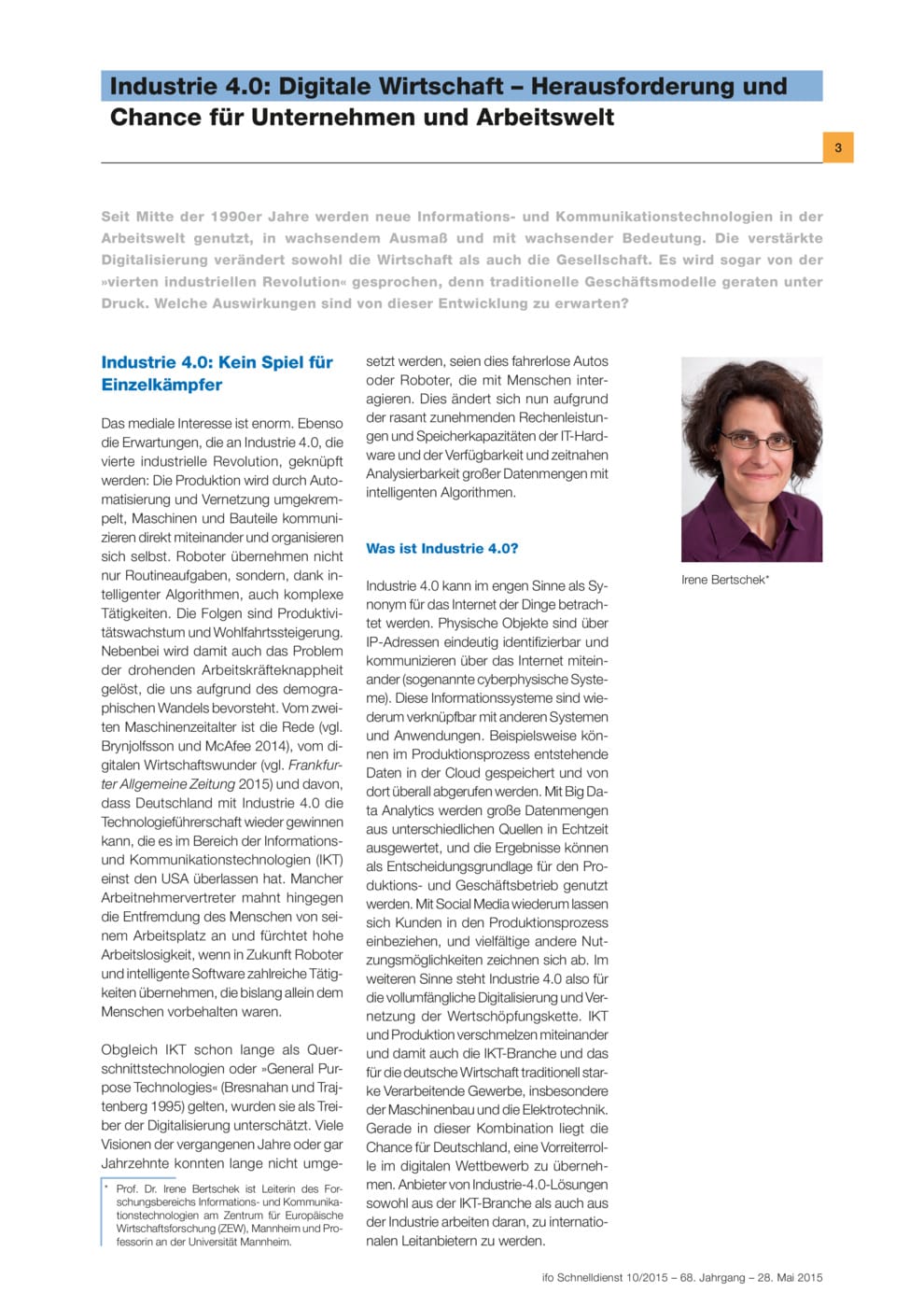Industry 4.0: The Digital Economy – Challenges and Opportunities for Businesses and the Working World
ifo Institut, München, 2015
ifo Schnelldienst, 2015, 68, Nr. 10, 03-18

Since the mid-1990s, new information and communication technologies have been used to an increasing extent and with growing importance in the world of work. Increased digitisation has changed both the economy and society. Some even call this a "fourth industrial revolution", because traditional business models are being called into question. What is the impact of this development? Irene Bertschek, Centre for European Economic Research (ZEW), Mannheim, and Mannheim University, sees the merger of ICT and production, and thus the ICT sector and the manufacturing sector, as an opportunity for Germany to take a pioneering role in the digital competition. The digitisation of the world of work also offers companies the chance, through individual working time models, to strengthen professionals' ties to the company and to allow staff to achieve a better balance between work and private life. However, both companies and their workers face the challenge of using this flexibility efficiently and responsibly. Exploiting the potential of digitisation depends largely on complementary investments in organisational capital and in human capital. Reiner Clement, Bonn-Rhein-Sieg, discusses crowdsourcing. This concept involves outsourcing a task to an indeterminate or unknown group, usually through an Internet platform. The aim is an interactive form of service delivery. Crowdsourcing has a number of opportunities and risks. A positive aspect is that crowdsourcing enables enterprises to access a pool of labour and knowledge that exceed the own capacities. A critical aspect is the negative impact on the labour market if the prices for paid employment fall. For Daniel Buhr, University of Tübingen, Industry 4.0 is much more than technology: it is important to understand Industry 4.0 as an interaction between technical and social innovations. This is the only way to ensure that as many as possible benefit from the opportunities, and not only a small part of society. Hartmut Hirsch-Kreinsen, Technische Universität Dortmund, is convinced that planning and management will also feel the longer lasting effects of the introduction of Industry-4.0 systems. At the operational level, a number of studies suggest that digital technologies automate and thus substitute simple tasks – with the new technologies there will be a connecting and a general "upgrading" of jobs and skills. Oliver Falck, Alexandra Native, Anita Jacob Puchalska and Andreas Mazat, Ifo Institute, anticipate positive impulses, in general, but they also argue that computerisation and automation, and thus also their linkage to Industry 4.0, will pose potential threats to parts of the labour market, so that the employment effects associated with the structural changes will place high demands on labour market flexibility in order that all sectors of society can share in technological progress.